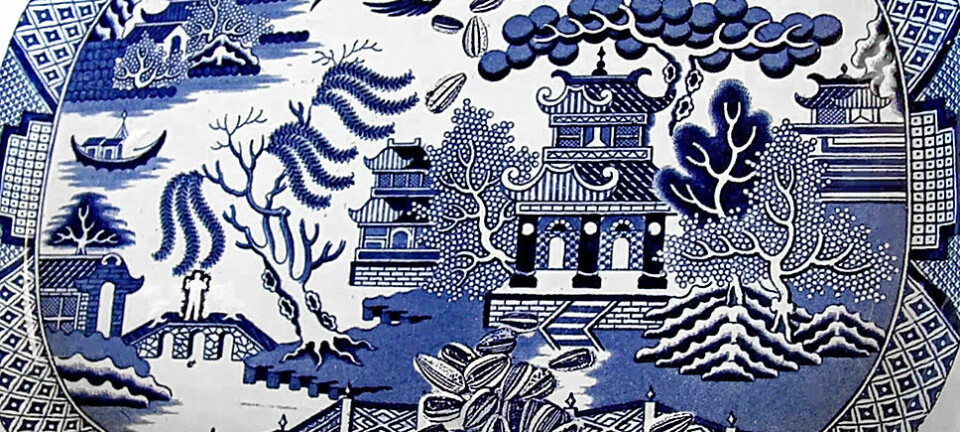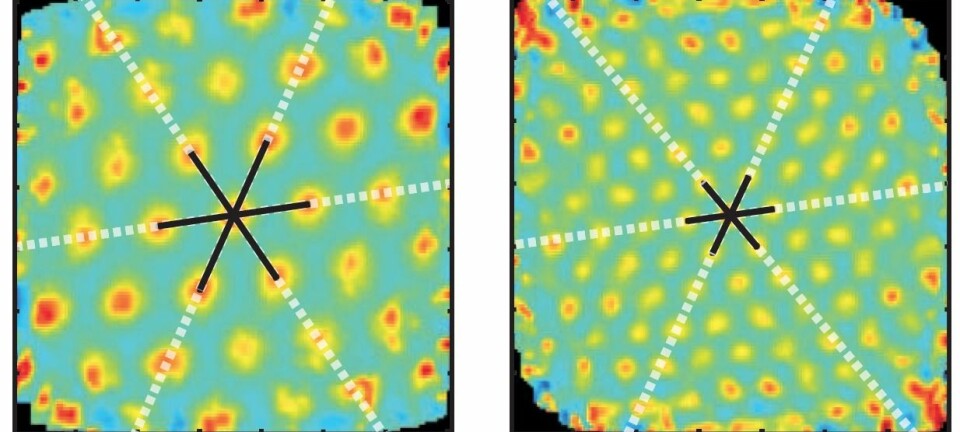
Your neighbour’s skin colour means less if your politics are aligned
Politics override ethnicity. A new study shows how we divide ourselves into groups, according to our political beliefs.
Political alliances can overshadow our basic instincts of dividing people by skin colour, says the results of a new study.
In other words: You might be sceptical of immigrants and would not vote for an immigrant candidate in a general election. But you may disregard your scepticism and vote for them anyway, if the migrant is a member of a political party you usually vote for.
The mechanism behind this phenomenon is reported in a scientific article that "provides the first empirical evidence that party politics activates the mind's system of alliances," say the researchers, writing in the journal Cognition.
We focus on selected elements in a specific situation
"The psychological process that we use to divide people into being right- or left-wing, is the same as the one we use to divide people according to race,” says co-author Michael Bang Petersen, a professor at the Department of Political Science at Aarhus University in Denmark.
“It should not be taken to mean that we automatically think about people according to their race or that we are intrinsically racist, not at all. We have an underlying extreme awareness as to who is allied with whom, and we think of political parties as such alliances," he says.
According to Petersen, the results show how fundamental and group-oriented politics are to people, and just how strong the emotions associated with politics actually are. The strength of emotions surrounding political opinions surprised him.
"On the other hand, the positive story is that we show the idea of black vs. white is not a fundamental human boundary. When we use a different frame, we stop thinking of people as black or white. Instead, we think the group identity is reflective of the specific situation at hand," says Petersen.
The conclusion is based on the analysis of 450 Americans.
Enables us to reflect on our own decision-making processes
Whilst there are sharp political and racial divides in the US, where the study is based, Petersen thinks that the results could also apply to other countries.
Voters in both the US and Denmark, in past research, are typically only excited by policy proposals from their own party, and generally reject the corresponding proposal from a competing party. According to Petersen, this suggests that people in both countries have the same basic approach to politics.
So what can we do with these results?
"I think it can help us to reflect on why we agree or disagree with the content of a proposal,” says Petersen.
According to him, we can become more aware as to the extent to which we may unthinkingly accept or reject the proposals of a political party, based on our own political allegiance or point of view.
Has evolution made us seek out alliances?
Dan Bang, a PhD student from the University of Oxford, studies what influences our decision-making processes. He has read the article by Petersen and his American colleagues and agrees with their findings.
However, Bang disagrees that the effect is proof that we find our way in the world by an inbuilt system in the brain, designed to sniff out alliances, and that political party alignment activates that system.
According to Petersen, party politics is part of a system of alliances, which developed in early humans on the savannah when we needed to be able to quickly recognise friend from foe in order to survive. Evolution contains elements that work, and therefore it makes sense that our brains still categorise people by alliances, such as political affiliation.
But Bang does not buy into this. He says that as a researcher in experimental psychology, he cannot see why evolutionary psychology should be used to explain the results.
"I disagree with the interpretation of their results. I am not convinced that we have an innate system of alliances or that such a system could be activated by party politics. It may be the case but it cannot be concluded from this study," says Bang.
Researcher: No proof for an innate system of alliances
Bang provides an example of an experiment that he believes is similar to the new study.
Imagine that you are part of an experiment in which you read the descriptions of various vehicles, including their speed, weight, and number of doors. Each description has a picture, which varies from the previous one by changing, for example, vehicle colour, make, and type (sports or otherwise).
Later you are asked to identify which description fits with each image, but you confuse cars of the same type or brand. Does this mean you have an innate system in your brain dedicated to cars, asks Bang. The answer he says, is no.
Nor does it mean that you have a psychological mechanism that is specifically interested in vehicle models or brands. You confuse cars of the same type and brand, because the categories are generally relevant to understanding the differences and similarities between the cars.
Caution when discussing dedicated psychological mechanisms
When discussing how we as humans tend to categorise many things in life, Bang suggests that the categories themselves are the most interesting factor, and not the individual examples within any of these categories, like in his car example, or the political allegiances in the new study.
"The categories tell us more than the individual examples within a given category, which is probably why we paid most attention to the overall categories in the first place," says Bang.
"Similarly, you probably really notice racial and political affiliations when you read statements about American society. But the importance of a given category can easily change depending on the context, and we can create new categories if they help us to understand the world around us. Our ability to think in categories is very flexible and is in no way limited to specific domains," says Bang.
According to Bang, the thought experiment shows that we must be cautious in drawing conclusions on psychological mechanisms with a dedicated function.
“I am convinced -- like many others in experimental psychology -- that much of human behaviour is supported by general psychological mechanisms that work across different domains and problems," he says.
Defence: Race and attitudes are something other than sex and age
Petersen disagrees with Bang’s comments.
"In the article we actually test and discuss the argument Bang raises. A particularly important aspect of the study is that we investigate how people process different types of information about other people," says Petersen.
"For example, we show that people use the same psychological mechanism to process information about race and opinions, and another, different mechanism to processes information on gender and age,” says Petersen.
“It's not that people do not pay attention to gender and age, when talking about society -- in fact we do. But we use different mechanisms to process this information," he says.
"The alliance-detection system is therefore a special and distinct psychological mechanism -- and we use it to think about modern politics. This is the main point, more so than whether or not the system is learned or innate. That said, I would be surprised if it is not innate as other animals like dolphins, wolves and chimpanzees have a psychology built to navigate in alliances," says Petersen.
-------------
Read the Danish version of this article on Videnskab.dk
Translated by: Catherine Jex
Scientific links
- Constituents of political cognition: Race, party politics, and the alliance detection system (pdf)
- Constituents of political cognition: Race, party politics, and the alliance detection system; Cognition; doi:10.1016/j.cognition.2015.03.007









